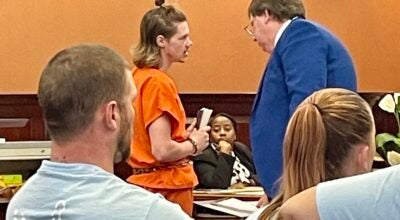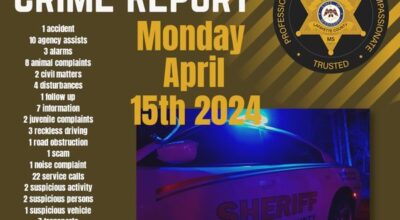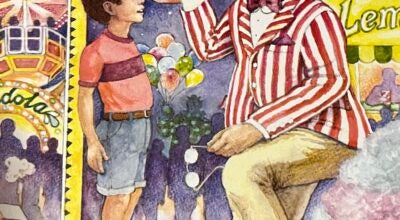Local author Ellen Meacham talks about her book “Delta Epiphany: Robert F. Kennedy in Mississippi” and similarities today
Published 8:15 am Monday, July 27, 2020
University of Mississippi professor Ellen Meacham spoke at the Mississippi Library Commission Lunch Lecture series about her book Delta Epiphany: Robert F. Kennedy in Mississippi.
Meacham, a journalism professor at the University of Mississippi, spoke to listeners via Zoom about her book and how it relates to today.
“One of the things that fascinated me was that Kennedy arrived in Mississippi at a pivotal point in history,” Meacham said. “ After the speeches, protests and the legal showdowns and the violence of the 1950s and early 1960s, Congress finally responded with sweeping changes. There were new Civil Rights Laws, enhanced protections for voting rights, and a new war on poverty.”
Delta Epiphany follows Robert Kennedy a year before his run for president which resulted in his death, as he visits the state of Mississippi in April 1967. Originally there as part of a Senate subcommittee investigation of poverty programs, Kennedy discovered children that were malnourished. He talked with mothers and asked them how they fed their children. He even talked to children and asked them what they had for breakfast that morning. One of these children happened to be Charlie Dillard, who was nine-years-old when he met Kennedy during his tour through the Delta. Charlie was outside in his grandparents’ yard playing when Kennedy walked up to the house.
“To Charlie’s surprise he approached the Dillard home and stopped to talk to the children before going inside,” Meacham said. “Kennedy greeted Charlie, delighting him by shaking his hand. A shocking thing for a white man to do in 1967 in Mississippi. Kennedy asked Charlie about school, which he was not yet attending and then asked what he had eaten that day. ‘Molasses,’ Charlie answered him.”
Kennedy would meet other children like Charlie and would find that many of the families in the Delta couldn’t afford to put enough food on the table. The impact of his journey left Kennedy searching for ways to help the children he encountered. His efforts would encounter many obstacles as he was blocked by powerful men who were not only indifferent to the issue but often times hostile to the plight of poor Black children in Mississippi.
“One of the things that really struck me when I was doing this, was how similar the kinds of reactions to what Kennedy was finding and how much the same approach that the people in charge of MS were similar. They said ‘These programs are a waste of money. We’re here to protect the tax payers.’ It seems sometimes that the only Bible story they read or took to heart was The Good Steward and didn’t listen to any of the others.They talked about creeping socalism. Anything that helped families was immediately branded as socialism. They bristled at Federal interference. They said ‘Oh you’re just trying to make Mississippi look bad.’ They refused millions and millions of dollars because of these sort of ideas about principles. And they do that today.”
The Mississippi Library Commission’s Summer Lunch Lecture Series is made possible through a grant from the Mississippi Humanities Council. Zoom links will be live two days before the programs.





